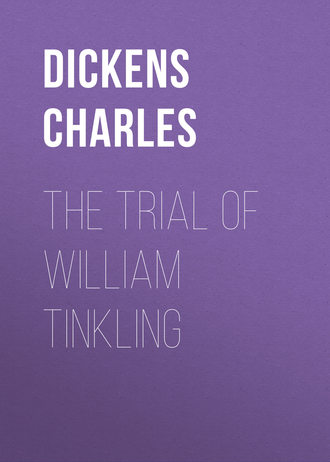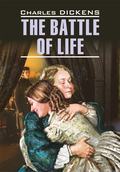
Чарльз Диккенс
The Trial of William Tinkling
It was for this point that I had saved myself up, as the turning-point of my case. Shaking myself free of my guards – who had no business to hold me, the stupids! unless I was found guilty – I asked the Colonel what he considered the first duty of a soldier? 'Ere he could reply, the President of the United States rose and informed the court that my foe the Admiral had suggested "Bravery," and that prompting a witness wasn't fair. The President of the Court immediately ordered the Admiral's mouth to be filled with leaves, and tied up with string. I had the satisfaction of seeing the sentence carried into effect, before the proceedings went further.
I then took a paper from my trousers-pocket, and asked: "What do you consider, Colonel Redforth, the first duty of a soldier? Is it obedience?"
"It is," said the Colonel.
"Is that paper – please to look at it – in your hand?"
"It is," said the Colonel.
"Is it a military sketch?"
"It is," said the Colonel.
"Of an engagement?"
"Quite so," said the Colonel.
"Of the late engagement?"
"Of the late engagement."
"Please to describe it, and then hand it to the President of the Court."
From that triumphant moment my sufferings and my dangers were at an end. The court rose up and jumped, on discovering that I had strictly obeyed orders. My foe, the Admiral, who though muzzled was malignant yet, contrived to suggest that I was dishonoured by having quitted the field. But the Colonel himself had done as much, and gave his opinion, upon his word and honour as a Pirate, that when all was lost the field might be quitted without disgrace. I was going to be found "No Coward and Not Guilty," and my blooming Bride was going to be publicly restored to my arms in a procession, when an unlooked-for event disturbed the general rejoicing. This was no other than the Emperor of France's aunt catching hold of his hair. The proceedings abruptly terminated, and the court tumultuously dissolved.
It was when the shades of the next evening but one were beginning to fall, 'ere yet the silver beams of Luna touched the earth, that four forms might have been descried slowly advancing towards the weeping willow on the borders of the pond, the now deserted scene of the day before yesterday's agonies and triumphs. On a nearer approach, and by a practised eye, these might have been identified as the forms of the Pirate-Colonel with his Bride, and of the day before yesterday's gallant prisoner with his Bride.
On the beauteous faces of the Nymphs, dejection sat enthroned. All four reclined under the willow for some minutes without speaking, till at length the bride of the Colonel poutingly observed, "It's of no use pretending any more, and we had better give it up."
"Hah!" exclaimed the Pirate. "Pretending?"
"Don't go on like that; you worry me," returned his Bride.
The lovely Bride of Tinkling echoed the incredible declaration. The two warriors exchanged stoney glances.
"If," said the Bride of the Pirate-Colonel, "grown-up people WON'T do what they ought to do, and WILL put us out, what comes of our pretending?"
"We only get into scrapes," said the Bride of Tinkling.
"You know very well," pursued the Colonel's Bride, "that Miss Drowvey wouldn't fall. You complained of it yourself. And you know how disgracefully the court-martial ended. As to our marriage; would my people acknowledge it at home?"







